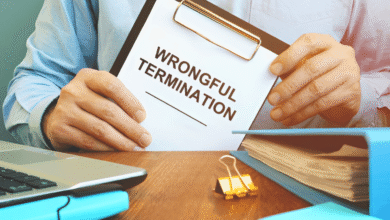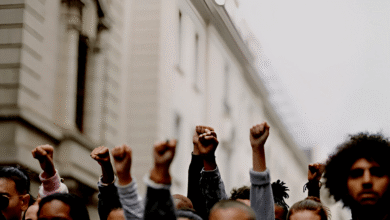Know Your Civil Rights: Speak to a Lawyer Today
Civil rights lawyer can protect your freedoms. Learn your rights and get legal help for discrimination, police misconduct, or violations today.

Understanding your civil rights is the first step toward protecting yourself against injustice and discrimination. In today’s complex legal landscape, many individuals face violations of their fundamental freedoms without realizing they have legal recourse. Whether it’s workplace discrimination, police misconduct, or denial of services, knowing your rights empowers you to take action. Speaking to a civil rights lawyer today can help you navigate these challenges and ensure your voice is heard. Legal professionals specialize in protecting these essential freedoms and can guide you through the process of seeking justice.
Many people hesitate to seek legal help because they’re unaware of their rights or fear retaliation. However, civil rights laws exist to protect you, and experienced attorneys can help enforce them. From employment disputes to housing discrimination, a qualified lawyer can assess your case and determine the best course of action. Don’t wait until it’s too late if you believe your rights have been violated, it’s crucial to speak to a lawyer today. Taking prompt action can make all the difference in securing the justice and compensation you deserve.
Know Your Civil Rights
Understanding Civil Rights
Civil rights are the bedrock of a fair society, ensuring that every individual receives equal treatment under the law. These rights protect against discrimination, police misconduct, and unjust policies. Rooted in the U.S. Constitution, particularly the First Amendment (free speech, religion) and the Fourteenth Amendment (equal protection), they guarantee fundamental freedoms. However, despite legal safeguards, violations occur daily, affecting marginalized communities disproportionately. A civil rights lawyer specializes in cases where these protections are ignored or abused. They help clients navigate complex legal systems, file lawsuits, and seek compensation. Whether it’s workplace harassment, housing discrimination, or excessive police force, a lawyer can assess your case and determine the best course of action.
Common Civil Rights Violations You Should Recognize
Many people experience civil rights violations without realizing it. Employment discrimination based on race, gender, or disability is illegal under Title VII of the Civil Rights Act. Similarly, law enforcement misconduct, such as unlawful searches or excessive force, violates the Fourth Amendment. Schools denying accommodations for disabled students breach the Americans with Disabilities Act (ADA). These injustices demand legal action to uphold fairness. If you’ve faced retaliation for reporting misconduct or were denied services due to prejudice, a lawyer can help. Legal professionals gather evidence, file complaints with agencies like the EEOC (Equal Employment Opportunity Commission), and represent you in court. Delays in seeking legal advice can weaken your case, so acting promptly is essential. Knowing the signs of civil rights abuses ensures you take timely action.
Why You Should Speak to a Lawyer Today
Many victims of civil rights violations hesitate to pursue legal action, fearing costs or retaliation. However, most civil rights lawyers work on a Contingent fee, meaning you only pay if you win. Legal experts can assess whether your case has merit, guide you through filings, and negotiate settlements. Without a lawyer, you risk missing deadlines or failing to present a strong argument. Additionally, lawyers understand how to hold powerful entities accountable. Whether suing a government agency or a private employer, legal representation levels the playing field. Delaying legal consultation may result in lost evidence or expired statutes of limitations speaking to a lawyer today ensures your rights are protected.
How to Choose the Right Civil Rights Lawyer
Assess Their Experience and Specialization
Look for attorneys who specifically handle civil rights cases, such as discrimination, police misconduct, or First Amendment violations. Check their track record of successful verdicts or settlements in cases similar to yours. A lawyer well-versed in federal and state civil rights laws will be better equipped to build a strong case.
Verify Their Credentials and Reputation
Research their standing with state bar associations and look for disciplinary actions. Read client testimonials and peer reviews to gauge their professionalism and success rate. Lawyers affiliated with respected civil rights organizations often have deeper expertise and resources.
Evaluate Their Communication and Strategy
During consultations, assess whether they clearly explain legal options and potential outcomes. A good lawyer should outline a tailored strategy for your specific case. Pay attention to their responsiveness—consistent communication is key to a successful attorney-client relationship.
Understand Their Fee Structure
Most civil rights lawyers work on contingency (paid only if you win), but clarify all potential costs upfront. Ask about additional expenses like court fees or expert witnesses that may arise. Compare fee structures between firms to find one that aligns with your financial situation.
Consider Their Resources and Network
Complex civil rights cases often require investigators, expert witnesses, and research support. Ensure the firm has adequate staff and resources to handle your case effectively. Lawyers with connections to civil rights groups may access additional advocacy support.
Gauge Their Passion and Commitment
Choose an attorney who demonstrates genuine concern for civil rights justice. Lawyers personally invested in these issues often go above-and-beyond for clients. Their dedication can significantly impact both your case outcome and overall experience.
Check Availability and Caseload
Ensure the attorney has capacity to devote proper attention to your case. Overburdened lawyers may struggle to give your matter the focus it deserves. Ask about anticipated timelines and how often you’ll receive case updates.
Review Their Courtroom Experience
While many cases settle, you need a lawyer comfortable litigating in court if necessary. Ask about their trial experience and success rate before judges/juries. A seasoned litigator can better negotiate from a position of strength.
Trust Your Instincts
After meeting potential attorneys, reflect on who made you feel most confident. The right lawyer should balance legal expertise with personal rapport. Your comfort level with them will be crucial throughout what may be a lengthy process.
Read More: Struggling with Debt? Find Bankruptcy Lawyers by State
Conclusion
Know Your Civil Rights: Speak to a Lawyer Today to ensure your fundamental freedoms are protected. In a world where civil rights violations still occur far too frequently, taking proactive legal action can be the difference between justice and continued injustice. Whether you’ve faced discrimination, police misconduct, or any other violation of your constitutional rights, remember that you don’t have to navigate these challenges alone. A qualified civil rights attorney can provide the guidance and representation you need to hold violators accountable and secure the justice you deserve.
Don’t let uncertainty or fear prevent you from standing up for your rights. By choosing to speak to a lawyer today, you take the first crucial step toward protecting not just your own rights, but potentially helping to create systemic change for others in similar situations. Rights protections only have power when they’re enforced, and legal professionals stand ready to help you do exactly that. Your rights matter – take action now to defend them.
FAQs
What are civil rights?
Civil rights are legal protections that guarantee equal treatment and freedom from discrimination based on race, gender, religion, disability, and other protected characteristics.
When should I contact a civil rights lawyer?
You should speak to a lawyer if you face discrimination, police misconduct, wrongful termination, denial of services, or any violation of your constitutional rights.
How much does hiring a civil rights lawyer cost?
Many civil rights attorneys work on a contingency fee basis, meaning you only pay if they win your case, while others may offer free consultations.
What is the time limit to file a civil rights claim?
The statute of limitations varies by case type some require filing within 180 days, while others allow up to several years.
Can I handle a civil rights case without a lawyer?
While possible, navigating complex rights laws alone is challenging a lawyer improves your chances of success and fair compensation.











